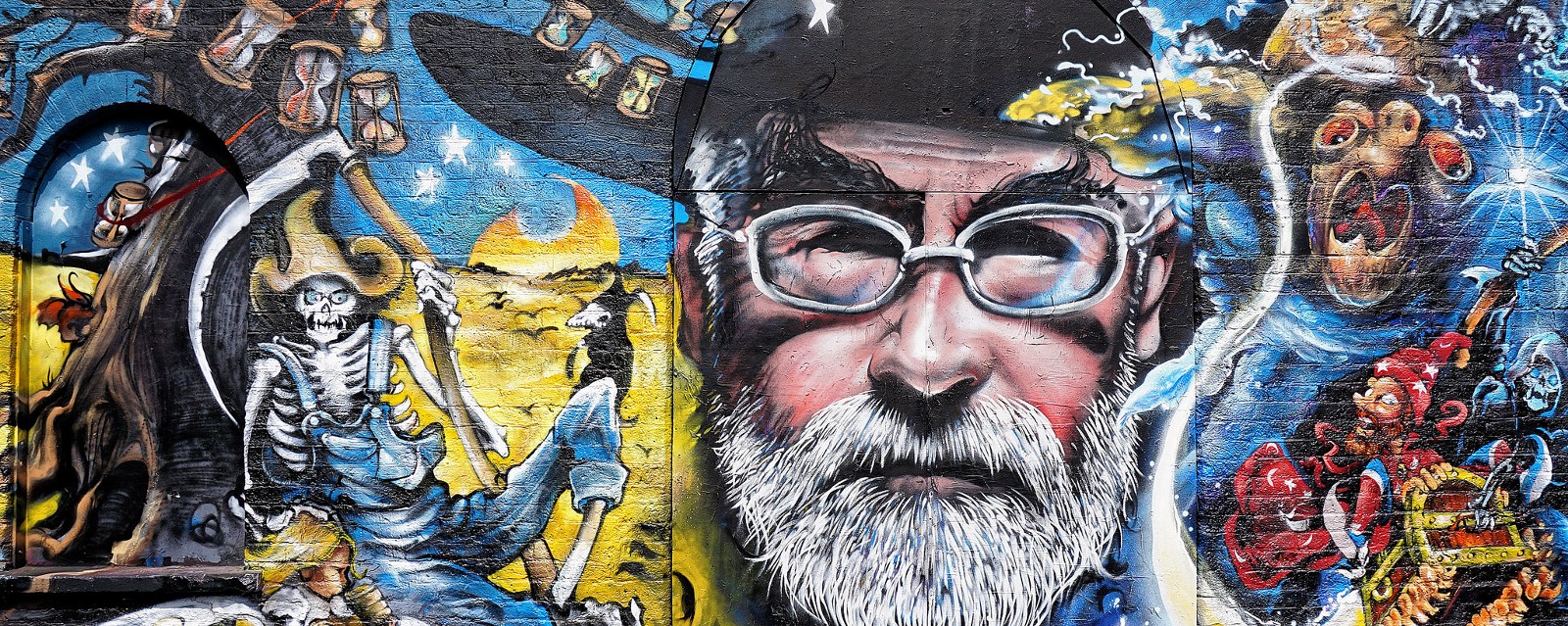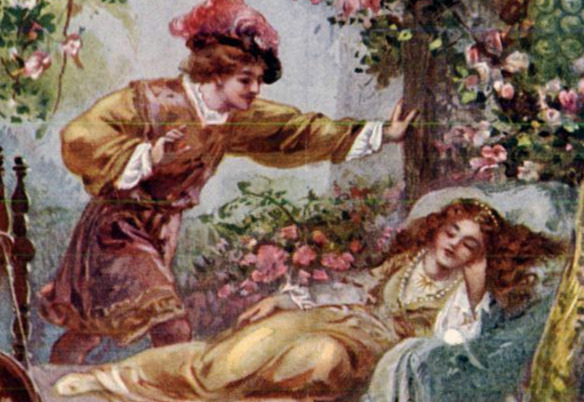news
Petition Created to Name New Periodic Table Element After Terry Pratchett’s Colour of Magic

by Melissa Ragsdale

After ringing in the New Year by adding four new elements to the periodic table, the International Union of Pure and Applied Chemistry (IUPAC) faces a petition to name one of its newly minted building blocks in honor of Sir Terry Pratchett’s The Colour of Magic. The Change.org petition (currently 42,632 supporters strong) requests that the IUPAC name element 117 ‘Octarine,’ for the “colour of magic” in Pratchett’s Discworld universe. The petition was created by Dr. Kat Day, who writes for the blog The Chronicle Flask.
Pratchett and the yet-t0-be-named element look to be quite a match. 117 is one of the heaviest elements and the final halogen in the periodic table. Its addition has reportedly given scientists hope in finding the “islands of stability,” theoretical elements whose “magic numbers” of protons and neutrons give them remarkably long life. In The Colour of Magic, Sir Terry described octarine as “the King Colour, of which all the lesser colours are merely partial and wishy-washy reflections. It was octarine, the colour of magic. It was alive and glowing and vibrant and it was the undisputed pigment of the imagination, because wherever it appeared it was a sign that mere matter was a servant of the powers of the magical mind. It was enchantment itself.” That’s a pretty strong start for a new element looking to build its reputation in the rough-and-tumble world of international scientific research and tenth grade chemistry classes. Dr. Day also argued that ‘Octarine’ “makes perfect sense,” since, as a halogen, “117 ought to have an ‘ine’ ending” to be consistent with the other elements in the group. (The abbreviation — Oc — would, be pronounced “ook” — remember the Librarian who runs things at the Unseen University?)
The petition may sound a little far-fetched, until you consider the history of elemental nomenclature. While many of the elements are named after their discovering scientists, their color, or the place where they were discovered, there are plenty of examples of names drawn from mythological sources. Promethium (61) was, of course, named after Prometheus, the Greek titan who stole fire from the gods and gave it to humanity, Tantalum (73) refers to Tantalus, son of Zeus, who was forced to stand in knee-deep water that would drain if he tried to drink. And it’s not just the Greeks who are in on the action, either. Cobalt (27), comes from the “Kobolds” of German folklore — evil spirits who snuck into mines to replace copper and silver with ores of the dime-store variety.
In fact, the IUPAC rules expressly provide for “a mythological concept or character” as inspiration in naming new elements. And that’s just what the ‘Octarine’ petition has in mind. “The Discworld stories are certainly stories about gods and heroes,” the petition argues, “and 70m books surely count for something.” Dr. Day noted in her announcement: “Ok, they’re not quite as old as the Greek myths, but they will be one day, right? Time is relative and all that.”
The element has gone by the provisional moniker ‘ununseptium.’ Following custom, the IUPAC has asked the discovering scientists to propose a permanent name.
And wouldn’t ‘Octarine’ be appropriate, blending literature and science, myth and truth, as Pratchett did so brilliantly in his books? The beloved author of more than 41 books (and rumored to be the most shoplifted author in the UK), Pratchett passed away last year after a long battle with Alzhemier’s disease. His books primarily take place in the Discworld, a satirical universe filled with wizards, gods, witches, guardsmen, dwarves, werewolves, dragons, guilds, and a very likable anthropomorphic version of Death. (Octarine is only visible to wizards and cats — no word yet on element 117’s visibility.) Pratchett’s books seek to dig more deeply into phenomena of the universe, drawing on philosophy, magic, and science alike to weave imaginative explorations into subjects such as belief, humanity, and war. As millions of fans will attest, Pratchett’s writing has had an enormous influence on how many of us understand the world. Naming ‘Octarine’ in his honor could be a perfect tribute to the collaboration between science and literature. Besides, as Day says, “If nothing else I’m absolutely certain that Sir Terry…would have a little chuckle at the idea.”
You can sign the petition to name element 117 ‘Octarine’ here.
And if you’re into the idea of shaking up the stuffy old element nomenclature racket, but Pratchett just isn’t your thing, note that ‘Octarine’ is not the only pop culture petition to arise out of the newly discovered elements. There is also a petition to name element 115 “lemmium” after the recently deceased Motörhead frontman. (Element 115, is after all, a heavy metal.) It currently has 140,619 supporters.









